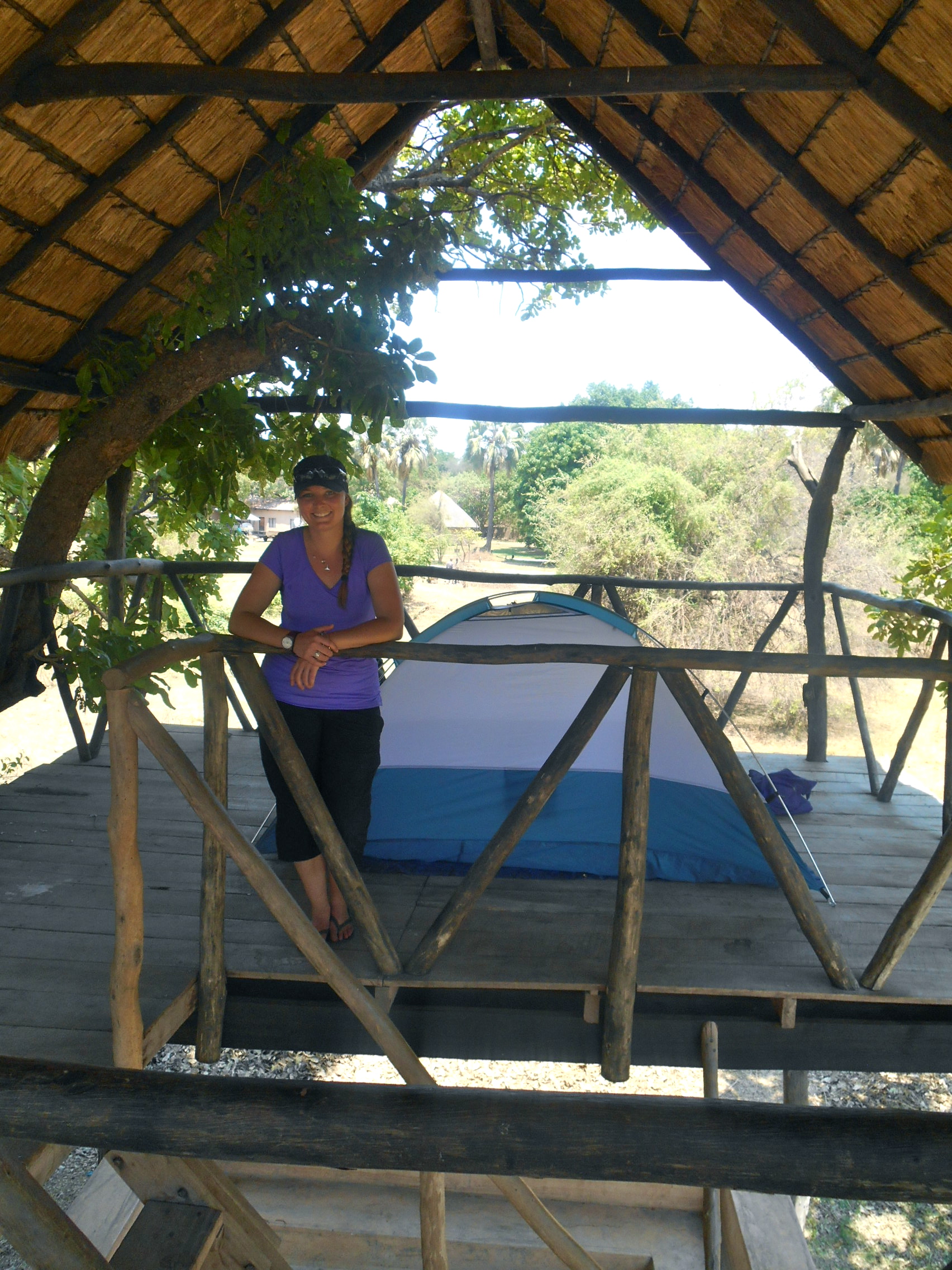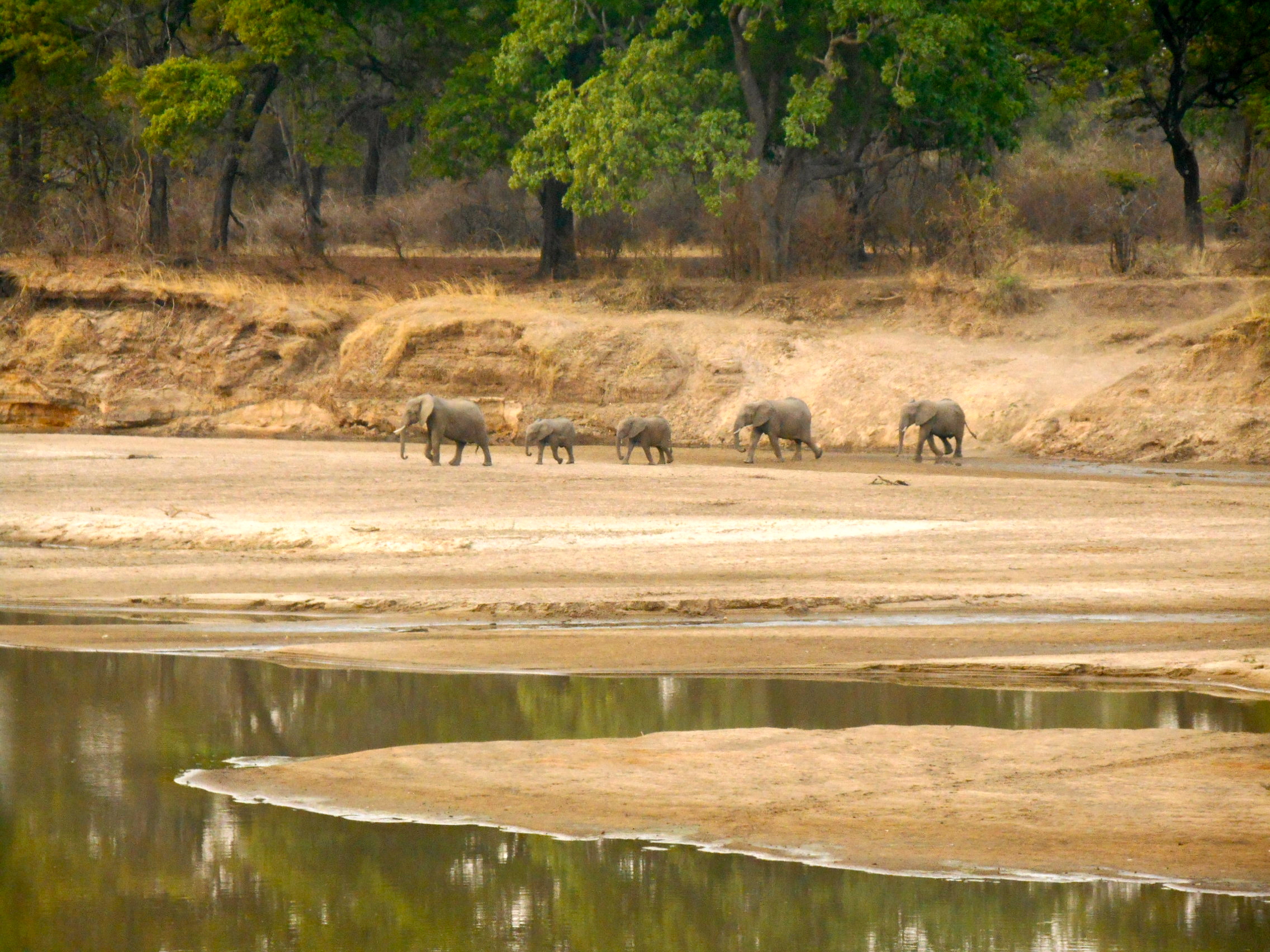In the last two hours I have: seen one hippo lethargically dance across an arid riverbed, witnessed a large male baboon assert his dominance in a heated call to his tribe, protested a group of monkeys stealing both our food and anti-malarial medications (thankfully for both us and the monkeys we got the medications back), watched in awe as a family of five wild elephants crossed the riverbed to join us at the campsite– where the baby eventually made her way into the kitchen, sending the chef running. Her antics resulted in the crowd of spectators; and chef, erupting into uncontrollable laughter. Perhaps most endearing, the elephant ended up backing out of the kitchen, as she was too large to turn around, with her loot in tow– a prized batch of vegetables.
No, this is not my everyday life in Malawi. However, it is the charmed reality I am experiencing while on vacation with GHC Fellow Kelsey Nagel at South Luangwa National Park in Zambia. Our trip was spurred, or necessitated, because we do not have the proper Temporary Employment Permit (TEP); as a result, in order to remain in the country for the duration of our fellowships, as expatriates, we are required to leave Malawi everything three months until the TEP is secured. Despite the origins of this adventure, like all things I’ve experienced during my time in Africa; I’ve seemingly found myself exactly where I’m meant to be, building lasting memories and experiences within the GHC community.
Having been at our placement sites for three months, now through our first quarter, I have both the desire and need to engage in restorative practices. In my experience, and opinion, nothing is more restorative then being with community. Peter Block describes this concept beautifully in The Structure of Belonging, “Restoration begins when we think of community as a possibility, a declaration of the future that we choose to live into… The communal possibility rotates on the question “What can we create together?” This emerges from the social space we create when we are together” (p.48).
When I find myself with the GHC community, I’ve observed both self and others asking pivotal questions similar to the one Peter Block posed above; grappling together as we work to build the movement towards global health equity. At our first quarter retreat fellows were synthesizing the essence of their respective learning from their placement sites. Fellows were generously offering both their time and knowledge to one another; a practice Mark Schoofs urged us to engage in during the GHC Training Institute at Yale in July.
Frankly, I know that the work that we are doing as fellows; and the career path that many of us are actively choosing in global health and service, is incredibly difficult on various levels. Each placement site and each fellow has his or her individual and collective struggle(s), no two landscapes are the same. I know that for self, it is because of the generosity and openness of the fellows and GHC community that I have been able to build resilience and re-engage in my work in effective ways; despite the adversities faced.
In the article How Resilience Works, Diane Coutu unpacks some of the core concepts of successful resilience, “Resilient people possess three characteristics: a staunch acceptance of reality; a deep belief, often buttressed by strongly held values, that life is meaningful; and an uncanny ability to improvise”. As a member of the GHC community, I know that we are able to support one another in the quest uphold these ideals of resilience:
- Together, we help one another to face the reality of our various placements and to openly process those concepts, successes, and challenges.
- We share a common belief and value as GHC fellows: that healthcare is a human right.
- Lastly, this year continues to teach me about both the importance of improvising, and the skills necessary to do so effectively.
In the end, it is the unstructured and informal moments when; like family of elephants emerging from the riverbed, community finds you and you find community in the most uncommon of places.


